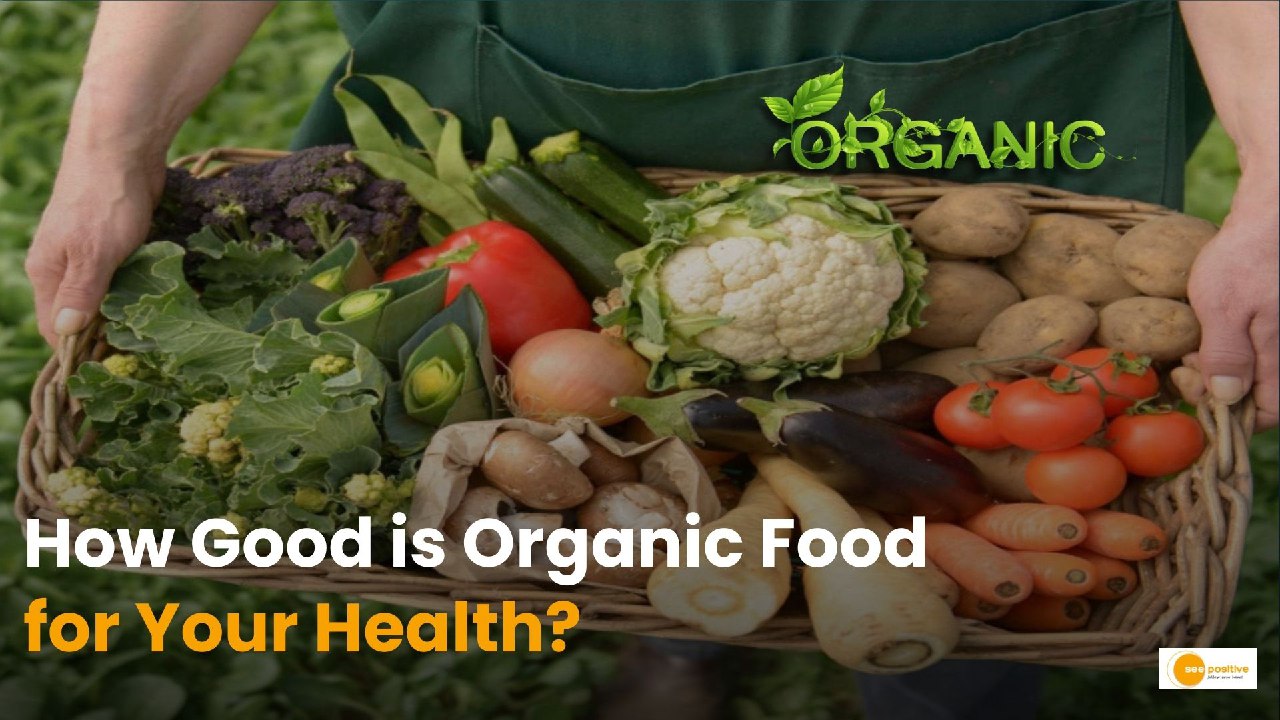Organic food refers to agricultural products that are grown and processed without the use of synthetic chemicals, fertilizers, pesticides, genetically modified organisms (GMOs), and other artificial additives. The idea behind organic farming is to create food that is sustainable and healthful by utilizing biodiversity, natural processes, and soil fertility control. This methodology yields advantages for both the environment and human health. Let’s discuss the health advantages of eating organic food.
1. Reduced Exposure to Pesticides and Chemicals
One of the most significant health benefits of consuming organic food is the reduced exposure to harmful pesticides and synthetic chemicals. Conventional farming methods often rely on these substances to protect crops from pests and diseases, but they can leave residues on the food we eat. Over time, these chemicals may accumulate in the body, potentially leading to various health issues, including hormone disruption, reproductive problems, and certain types of cancer. Contrarily, organic farming reduces the need for chemical interventions by utilizing natural alternatives including crop rotation, organic fertilizers, and biological pest control.
2. Higher Nutritional Value
Organic fruits, vegetables, and grains are often found to contain higher levels of essential nutrients, including vitamins, minerals, and antioxidants, compared to their conventionally grown counterparts. Antioxidants, in particular, are crucial in protecting the body from oxidative stress and inflammation, which can lead to chronic diseases like heart disease, diabetes, and cancer. Studies suggest that organic produce may have up to 20-40% more antioxidants, providing greater health benefits.
3. No GMOs
Genetically modified organisms (GMOs) are plants or animals that have been genetically engineered for certain traits, such as pest resistance or increased yield. While GMOs are widely used in conventional agriculture, their long-term effects on human health remain a topic of debate. Organic farming prohibits the use of GMOs, ensuring that the food you consume is free from genetically engineered components. This is particularly important for individuals who prefer to avoid GMOs due to concerns about potential allergens, antibiotic resistance, and other health risks.
4. Better for the Environment, Better for You
Beyond personal use, eating organic food has numerous health advantages. Organic farming practices contribute to environmental sustainability by promoting soil health, conserving water, reducing pollution, and supporting biodiversity. Healthier soils produce healthier crops, which in turn, provide more nutritious food. Additionally, organic farming reduces the carbon footprint and mitigates climate change, ultimately benefiting the well-being of communities and ecosystems. Know how is Organic Food Grown?
1. Soil Management and Fertility
Organic farming begins with the soil. Maintaining healthy, fertile soil is essential for growing nutritious crops. Organic farmers use natural methods to enhance soil fertility, such as composting, cover cropping, and crop rotation. Composting involves recycling organic matter, like plant residues and animal manure, into nutrient-rich compost that enriches the soil. Cover crops, such as legumes and grasses, are planted to protect the soil, prevent erosion, and fix nitrogen in the soil. Crop rotation, the practice of growing different crops in succession on the same land, helps to prevent soil depletion and disrupts pest and disease cycles.
2. Pest and Disease Control
Organic farmers rely on natural pest control methods to protect their crops from insects and diseases. These methods include introducing beneficial insects, such as ladybugs and predatory wasps, which prey on harmful pests. Other techniques include using organic pesticides made from natural ingredients, such as neem oil, garlic, and chili peppers, and practicing intercropping, where different crops are planted together to deter pests. By avoiding synthetic pesticides, organic farming reduces the risk of chemical residues on food and promotes a balanced ecosystem.
3. Weed Management
Weed management is another critical aspect of organic farming. Instead of using chemical herbicides, organic farmers use mechanical, biological, and cultural methods to control weeds. Mechanical methods include hand weeding, mulching, and tilling. Biological control involves the use of natural predators, such as insects or grazing animals, to reduce weed populations. Cultural practices, like planting cover crops and maintaining crop diversity, help to suppress weed growth and minimize competition for resources.
4. Organic Certification
To ensure that food labeled as organic meets strict standards, organic farms must undergo certification by an accredited body. This certification process involves regular inspections, soil and water testing, and detailed record-keeping to verify that the farm adheres to organic practices. Organic certification provides consumers with confidence that the food they are purchasing is genuinely organic and has been produced with care for both their health and the environment.
READ MORE Kamachi: Padma Shri Awardee in Outstanding Organic Farming – What She Grows?
Embracing the Organic Lifestyle
Choosing organic food is a powerful way to support your health, protect the environment, and promote sustainable farming practices. By understanding what organic food is, the health benefits it offers, and how it is cultivated, you can make informed choices that contribute to a healthier, more sustainable world. Whether you’re concerned about reducing your exposure to chemicals, improving your nutrient intake, or supporting ethical farming practices, organic food offers a natural and beneficial option for your diet and lifestyle.


